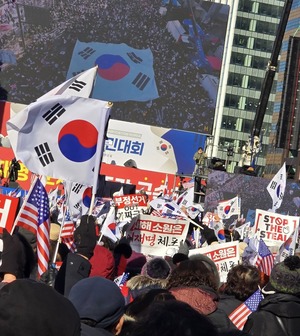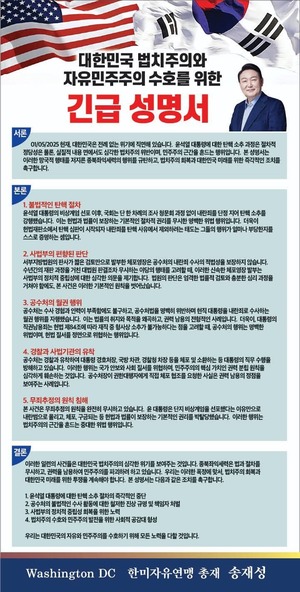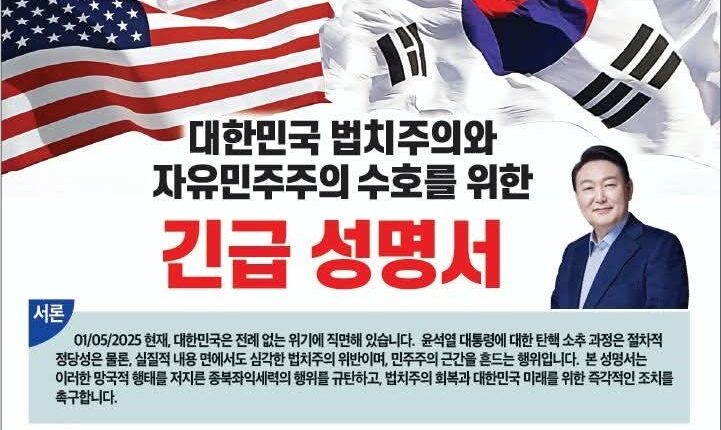Yoon Suk Yeol’s Lucky Break! Can Short-Staffed Korean Constitutional Court Could Tilt Impeachment Gamble in His Favor?
With a reduced bench at the Constitutional Court, a single vote can save the embattled president, leaving the divided nation bracing for the verdict.
New Delhi: As South Korean President Yoon Suk Yeol confronts impeachment proceedings and potential arrest following his controversial declaration of martial law, the political atmosphere is charged with uncertainty. Impeached by the National Assembly on December 14, 2024, Yoon’s fate now rests in the hands of the Constitutional Court, which is currently operating with only six justices due to vacancies.

According to South Korean law, a minimum of six out of nine justices must vote in favor of upholding the impeachment for it to succeed. This situation presents a unique opportunity for Yoon, as even a single dissenting vote could allow him to remain in office.
Yoon’s background as a renowned public prosecutor with decades of experience in law adds an intriguing layer to this unfolding drama. He has built a reputation as a no-nonsense figure who has tackled corruption head-on throughout his career. His supporters believe that his legal acumen may enable him to present compelling arguments during the Constitutional Court proceedings. There are expectations that he might unveil solid and tangible evidence of a North Korean conspiracy against South Korea—one of the justifications he cited for imposing emergency martial law.

The notion that Yoon could produce credible evidence linking opposition parties to North Korean influences is seen as potentially explosive. Senior South Korean nationals express confidence in Yoon’s integrity, asserting that he would not make claims without substantial grounds and logical facts. If he successfully demonstrates this North Korean angle during the impeachment proceedings, it could significantly undermine the opposition party’s credibility and political standing.
Public sentiment towards Yoon is gradually shifting: Many citizens are beginning to sympathize with him, viewing the opposition’s repeated attempts at impeachment—22 motions in total over two years—as an abuse of power rather than legitimate governance concerns. Approximately half of these motions have failed, leading some voters to question the motives behind the opposition’s relentless pursuit of impeachment.
Yoon’s administration has faced significant challenges since he took office, particularly regarding national security and civil liberties. His decision to impose martial law on December 3 was met with outrage and accusations of authoritarianism. However, his supporters argue that he was acting in defense of democracy against what they perceive as anti-state forces within the opposition.
As he prepares for the upcoming Constitutional Court hearings, and potential arrest, Yoon remains defiant. He has vowed not to back down and continues to assert that his actions were necessary for national security. The court’s decision will be crucial not only for his presidency but also for the future political landscape in South Korea.
If Yoon manages to secure a favorable ruling, it could restore his presidency and reshape the dynamics between his administration and opposition parties moving forward. Conversely, if he is removed from office, it would mark a historic moment in South Korea’s democratic history, making him only the second president to be successfully impeached.
The coming weeks will be critical for President Yoon Suk Yeol as he confronts both legal challenges and shifting political tides in a nation deeply divided over its leadership. As South Koreans await the court’s decision, all eyes will be on how this saga unfolds and what it means for the future of democracy in South Korea. Should Yoon successfully present evidence regarding North Korean conspiracies during these proceedings, it could not only exonerate him but also significantly alter public perception and political alliances within the country.
In this pivotal moment, President Yoon’s extensive legal background may prove advantageous as he navigates this complex situation. His ability to articulate a compelling defense based on solid evidence could not only thwart impeachment but also redefine his presidency amidst one of South Korea’s most challenging political crises.


